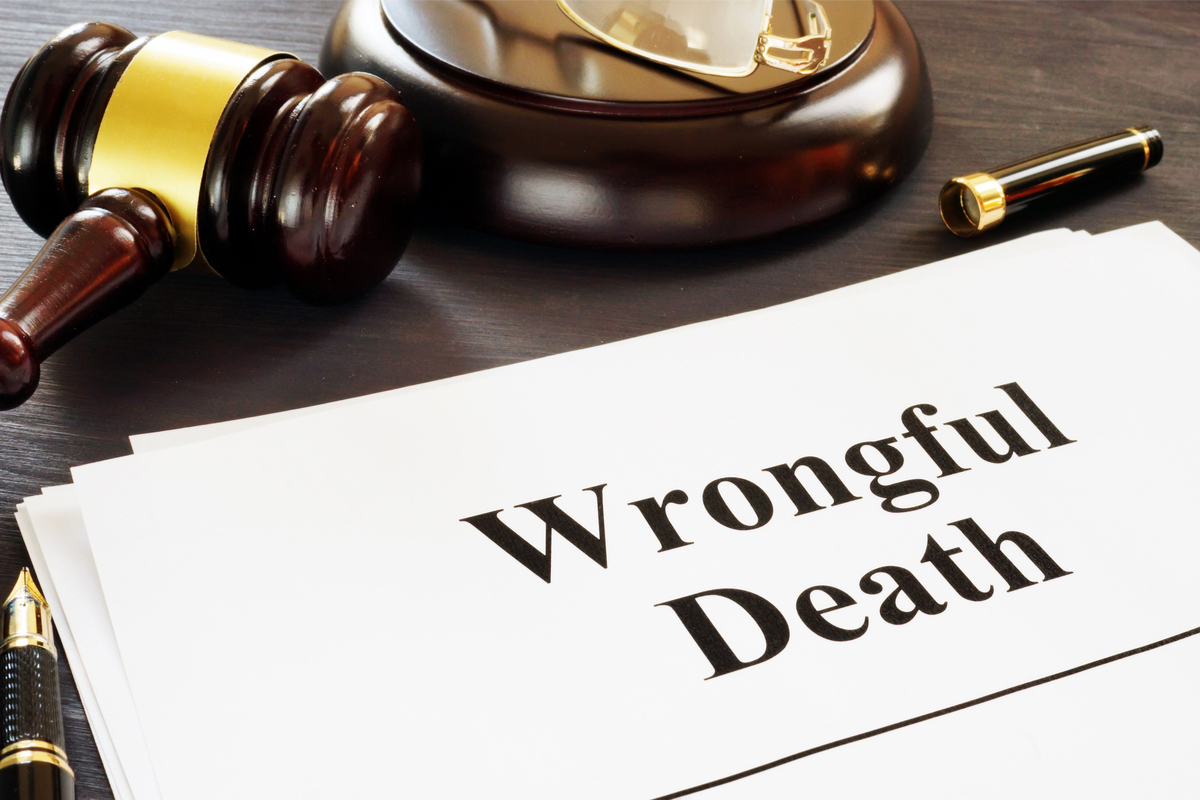What Defines Wrongful Death in Wisconsin?
Wrongful death is a devastating event that occurs when a person loses their life due to the negligent actions or misconduct of another individual or entity. In Wisconsin, wrongful death claims are governed by specific laws, which define the circumstances under which a legal action can be pursued.
Wrongful death in Wisconsin is defined as a death that is caused by the wrongful act, neglect, or default of another party. This can include actions such as medical malpractice, motor vehicle accidents, workplace accidents, nursing home neglect, or any other situation where negligence or misconduct leads to a person’s untimely demise.

Who is Eligible to File a Wrongful Death Claim in Wisconsin?
In Wisconsin, the personal representative of the deceased person’s estate is responsible for filing a wrongful death claim. The personal representative is typically designated in the deceased person’s will. If there is no will, the court will appoint a personal representative. [1]
This individual acts as the executor of the deceased person’s estate and has the legal authority to make decisions on behalf of the estate, including initiating legal actions such as a wrongful death claim.
While the personal representative of the estate is the primary party responsible for filing the claim, it is important to note that other individuals may also have the right to file a wrongful death claim in Wisconsin. Domestic partners and minor children of the deceased person are recognized as eligible parties. They may have their own separate claims or join the personal representative in pursuing the wrongful death claim.
When domestic partners or minor children file a wrongful death claim, they may be entitled to pecuniary damages. This type of compensation is meant to address the financial losses suffered by the survivors as a result of the death.
Pecuniary damages can include loss of financial support and contributions that the deceased person would have provided if they were still alive. These damages can help alleviate some of the financial burdens imposed on the surviving family members.

What is the Statute of Limitations for Filing a Wrongful Death Claim in Wisconsin
In the state of Wisconsin, there is a specific time limit, known as the statute of limitations, for bringing forward a wrongful death claim. Typically, this time limit is set at three years from the time of death. It is necessary for the personal representative of the deceased individual’s estate, or any other eligible party, to initiate legal proceedings within this three-year window.
By adhering to this statute of limitations, eligible parties can ensure that they have the opportunity to seek fair compensation for the losses incurred due to the untimely death. This compensation may encompass various aspects, including covering medical costs and burial expenses.
There are certain exceptions to the three-year statute of limitations in Wisconsin. If the wrongful death was caused by medical malpractice, the law allows for an extended time period to file a claim. In these cases, the lawsuit must be filed within three years from the date of the negligent act or omission, or within one year from the date the injury was discovered or should have been discovered, whichever is later.
Common Causes of Wrongful Death Claims in Wisconsin
There are many causes of wrongful death lawsuits, they include the following:
- Motor Vehicle Collisions: Fatal car accidents, truck accidents, and motorcycle accidents are leading causes of wrongful death claims.
- Medical Malpractice: Medical negligence and errors can lead to wrongful death claims. These may include misdiagnosis, surgical errors, medication errors, birth injuries, or failure to provide appropriate treatment or care.
- Workplace Accidents: Accidents that occur on the job can also lead to wrongful death claims. This may include accidents in construction sites, factories, or other hazardous work environments. The company responsible can be taken to court and be required to pay compensatory damages for accidental deaths that are work-related.
- Nursing Home Neglect or Abuse: Wrongful death claims can arise from neglect or abuse in nursing homes or assisted living facilities. Failure to provide proper care, medication errors, or physical, emotional, or financial abuse can result in tragic outcomes for vulnerable individuals.
- Premises Liability: Property owners have a duty to maintain safe premises for visitors. If a death occurs due to unsafe conditions, such as slip and falls, inadequate security, or building code violations, the surviving family members can pursue a wrongful death claim.
- Product Liability: Defective products or products that do not include proper warnings or instructions can result in fatal accidents. Manufacturers, distributors, or sellers may be held liable for wrongful death caused by their products.
- Criminal Acts: If a death occurs due to the intentional actions of another person, such as assault, homicide, or manslaughter, the surviving family members may pursue a wrongful death lawsuit in addition to any criminal charges brought against the person responsible.

Types of Compensation Available Through a Wrongful Death Claim in Wisconsin
- Economic Damages: This type of compensation aims to cover the financial losses resulting from the wrongful death. Economic damages typically include medical expenses, funeral expenses, and loss of financial support or contributions that the deceased would have provided to the family.
- Non-Economic Damages: Non-economic damages are intended to compensate for the emotional and non-financial impact of the wrongful death. This may include the loss of companionship, the pain and suffering experienced by the deceased before death, and the loss of consortium for the surviving spouse.
- Punitive Damages: In some cases, the court may award punitive damages in addition to economic and non-economic damages. Punitive damages are intended to punish the liable party for their negligent or intentional actions and to deter others from engaging in similar behavior in the future. In Wisconsin, punitive damages are only awarded in cases involving intentional or malicious conduct.
Wisconsin has a “cap” or limit on non-economic damages in wrongful death cases. As of 2021, the maximum non-economic damages that can be awarded in a wrongful death claim is $750,000.
Do I Need a Lawyer for a Wrongful Death Claim in Wisconsin?
The short answer is yes, it is highly recommended to hire an experienced attorney to handle your case. Dealing with a wrongful death claim can be complex, and having a knowledgeable legal professional by your side will ensure that your rights are protected and that you receive the compensation you deserve.
Wrongful death claims involve a wide range of legal process complexities, from gathering evidence to establishing liability. An attorney who specializes in wrongful death cases will have the expertise and resources to navigate these complexities and build a strong case on your behalf.
A wrongful death attorney will handle all aspects of your claim for damages, including investigating the circumstances of the death, identifying responsible parties, negotiating with insurance companies, and representing you in court if necessary.
Schedule a consultation with our wrongful death lawyers at Lein Law Firm today to ensure your rights are protected and seek the justice your loved one deserves.
Source
[1] Wisconsin State Legislature. (n.d.). Retrieved August 28, 2023, from https://docs.legis.wisconsin.gov/statutes/statutes/895/I/04


